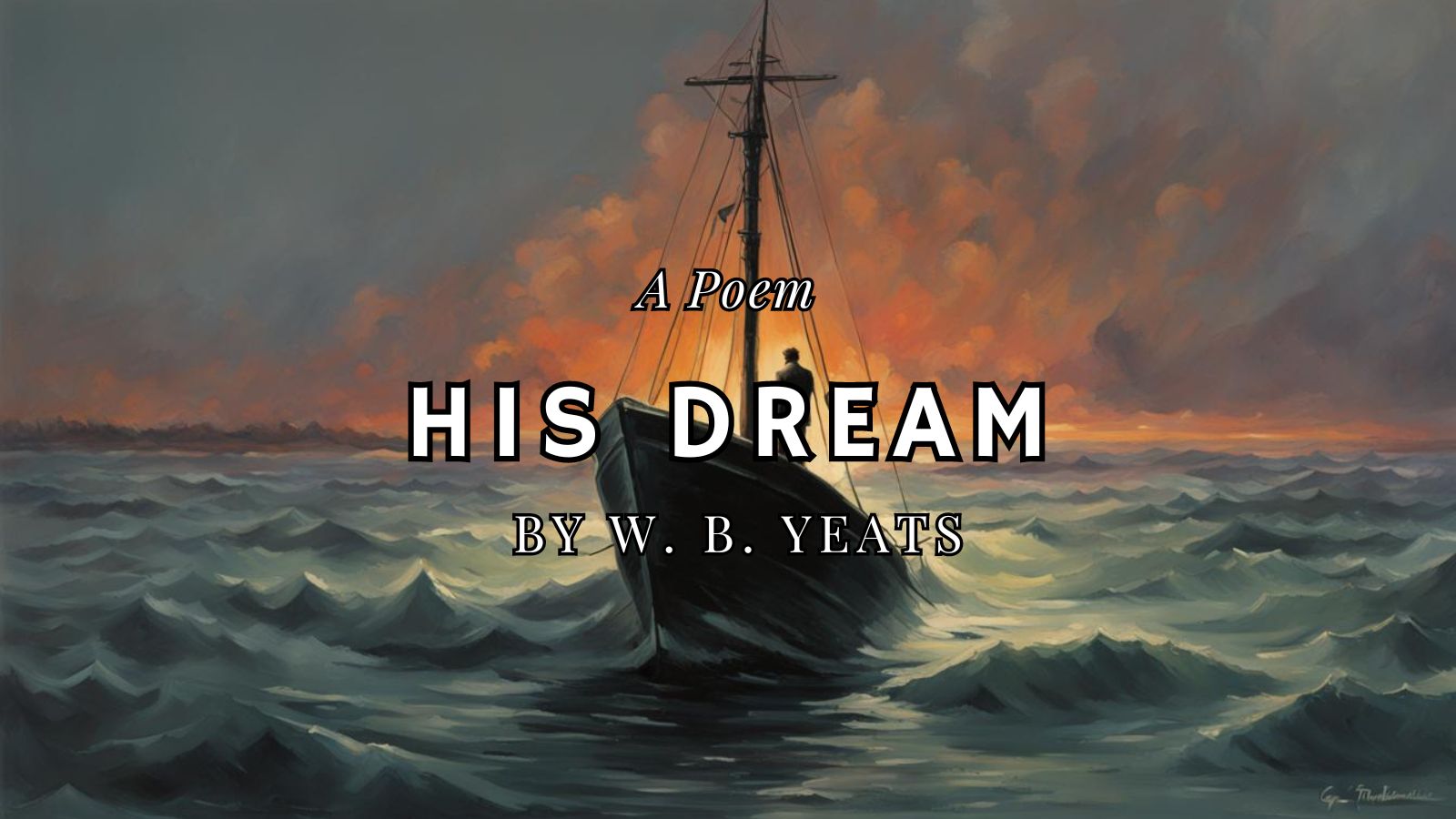His Dream by W. B. Yeats

His Dream
by W. B. Yeats
I swayed upon the gaudy stern
The butt end of a steering oar,
And everywhere that I could turn
Men ran upon the shore.
And though I would have hushed the crowd
There was no mother’s son but said,
What is the figure in a shroud
Upon a gaudy bed
And fishes bubbling to the brim
Cried out upon that thing beneath,
It had such dignity of limb,
By the sweet name of Death.
Though I’d my finger on my lip,
What could I but take up the song?
And fish and crowd and gaudy ship
Cried out the whole night long,
Crying amid the glittering sea,
Naming it with ecstatic breath,
Because it had such dignity
By the sweet name of Death.
###
William Butler Yeats (1865-1939) was one of the foremost poets of 20th century literature. An Irish poet and playwright, Yeats helped drive the Irish Literary Revival and co-founded the Abbey Theatre. He was awarded the Nobel Prize in Literature in 1923 for what the Nobel Committee described as “inspired poetry, which in a highly artistic form gives expression to the spirit of a whole nation.”
Yeats was born in Dublin and spent his childhood between London and County Sligo in Ireland. The Irish landscape and folklore of his youth informed much of his poetic imagery and nationalistic sentiments later in life. Though he trained as a painter initially, Yeats turned fully towards poetry in his twenties while becoming involved in occult circles in London. He published several poetry collections in the 1890s as well as plays rooted in Irish mythology.
Alongside Lady Gregory, Yeats was a driving force behind the Irish Literary Revival aimed at reviving native Irish language and culture through art. As a playwright, he co-founded the Abbey Theatre with Gregory and others as a home for Irish drama. Over his long and prolific career, Yeats cemented his legacy as one of Ireland’s most revered writers, noted for his imaginative lyricism and powerful vision infused with Irish politics and mythology. His poems of unrequited love, Irish rebellion and the arcane remain widely influential in modern literature.